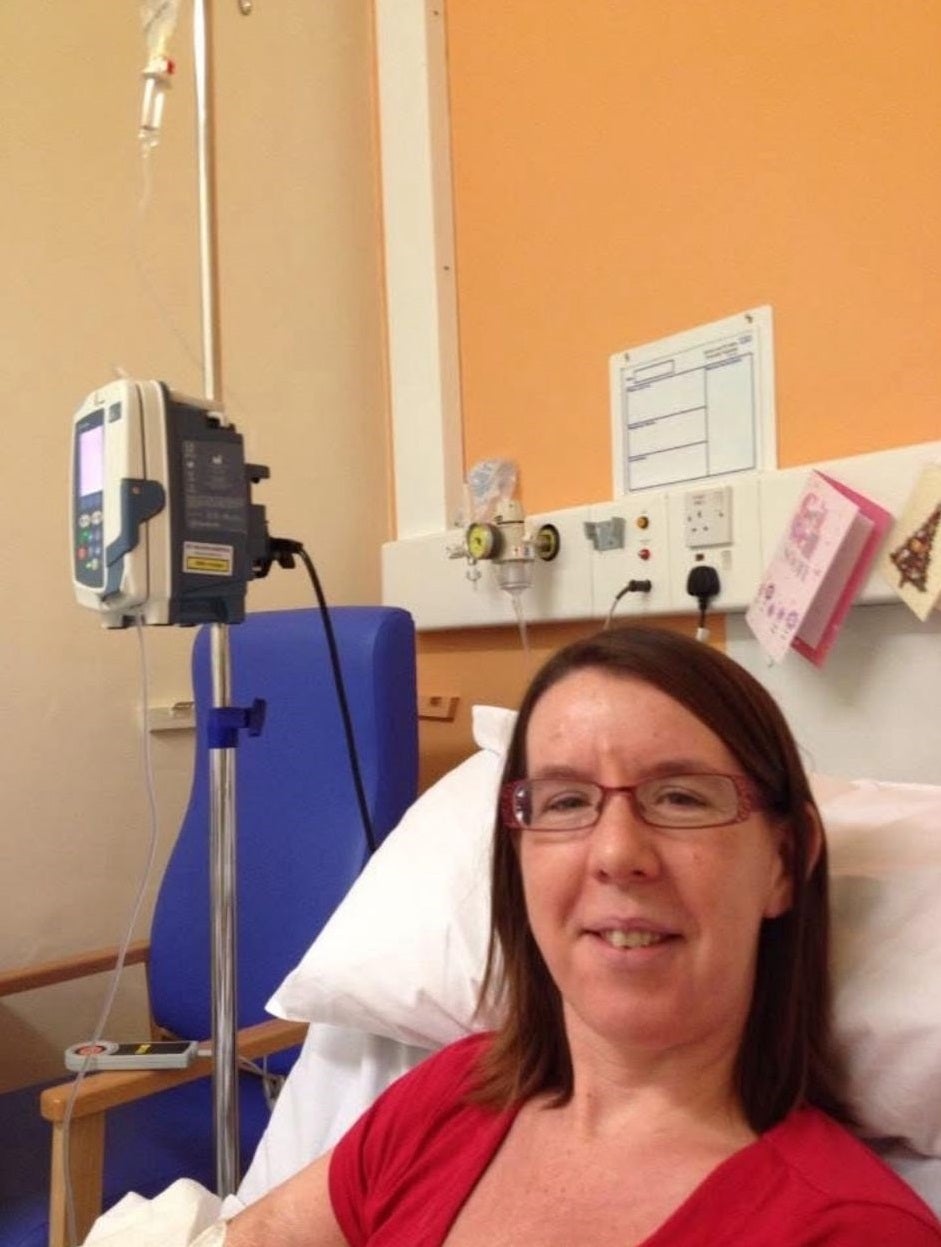ARTICLE AD BOX
Patients with a rare and aggressive type of blood cancer could soon have their chances of survival doubled as a groundbreaking trial to detect the disease earlier concludes.
Scientists working on the trial developed a highly sensitive test that that spots traces of disease in the bone marrow of patients to identify of acute myeloid leukaemia (AML).
The 10-minute procedure – which involves an injection in the hip bone every three months – was able to identify signs of AML returning in patients before it showed in blood tests.
This gives medics a “window of opportunity” to treat people while they are still well, researchers said.
Experts hope the test could become routine care for patients with acute myeloid leukaemia (AML) in the UK and beyond.
AML is a cancer which causes the bone marrow to produce a large number of abnormal blood cells and around 3,100 people are diagnosed in the UK each year.
The risk of developing the disease increases with age and it is most common in people over 75.
After treatment, patients are usually seen every few weeks for blood tests.

Professor Nigel Russell, honorary consultant at Guy’s and St Thomas’ NHS Foundation Trust and chief investigator on the trial, said: “There’s a significant risk for these patients that the leukaemia is going to come back again, and that’s normally detected by a deterioration in the blood tests.
“Sometimes it can happen very quickly, and sometimes it can happen over a period of weeks.
“So normally, the patient comes along, has a blood test done, the blood test is okay, they’re sent off again. That’s the procedure that’s been the case for many years.
“But the trial included these extra tests in the bone marrow every three months to detect if there’s any evidence of what we call residual leukaemia; it’s such a low level that the blood tests are normal, but the disease can still be present at very low levels in the bone marrow.”
The bone marrow test takes around 10 minutes and is performed under local anaesthetic, with a hollow needle inserted into the patient’s hip bone to take the sample.
“It detects the the RNA present in the leukaemia cells, but not present in normal cells,” Prof Russell added.
For the study, led by King’s College London and published in The Lancet Haematology, patients were screened for mutations in the NPM1 and FLT3 genes, which are common in younger people with AML.
The trial involved 637 people who were in remission from AML who, over three years, either received standard monitoring or standard monitoring with additional bone marrow tests every three months.
Prof Russell said: “It was about one third of patients that really benefited from this approach that had a doubling of their survival, which was a massive improvement in outcome for these patients.
“And really, it’s quite a simple extra procedure to have done. Since the results of the trial have become available, this sort of technology is now part of what we call the standard of care.
“The important thing is that it gives you a window of opportunity to treat the patient before they become unwell.
“Because if the patient relapses, they can become quite unwell very quickly, and their blood counts are very abnormal.
“They have to come into hospital, and they have to have further treatment of chemotherapy, and then possibly go on to a bone marrow transplant.
“The advantage of detecting it early is the patients can have these treatments when they’re still well. Even potentially as an outpatient, because their blood tests are normal.
“They don’t need to come into hospital as an emergency and they’re starting with a fresh start, really, rather than being ill again.”
Jane Leahy, 51, from Wimbledon, is one of the patients who took part in the trial.

She was diagnosed with AML in December 2014, at the age of 41, and after chemotherapy went into remission the following April.
The mother-of-two had her bone marrow tested as part of the trial, which picked up abnormalities a few months later.
After restarting treatment, the bone marrow test results also showed the chemotherapy was not working, with a stem cell transplant her only chance of going into remission again.
“Without testing, I wouldn’t have gone on to have my transplant, because my blood showed I was still in remission,” Mrs Leahy told PA.
Nine years after her bone marrow transplant – which was donated by her sister – Mrs Leahy is still in remission.
She added: “It’s pretty scary, really, when I think about potentially what could have happened. And there were so many things throughout my my treatment journey, it felt like the stars were aligning.
“I feel incredibly lucky.”
Mrs Leahy said bone marrow testing gives doctors “more time”, adding: “The time is always critical, because it’s so acute and so aggressive.
“And a lot of people die from AML before they get to treatment, because it’s just diagnosed so late.
“So it just gives more time, more opportunities to try different treatment approaches and pick it up earlier, before it becomes too late to do anything about.”
Dr Richard Dillon, a clinical senior lecturer in cancer genetics from King’s College London, said: “Acute myeloid leukaemia is the most aggressive form of blood cancer, so knowing early that a patient’s cancer is going to relapse is crucial for planning their treatment.
“We hope that these tests become part of routine care for this type of cancer across the UK and worldwide, and ultimately improve long-term survival rates for patients.”
Laura Challinor, from the Blood Cancer UK charity, which part-funded the study, said the findings “could help shift the dial in a positive direction”.
She added: “As this involves a bone marrow test every three months, we must also continue to push ahead with research into kinder therapies for the 280,000 people with blood cancer in the UK.”









 English (US) ·
English (US) ·